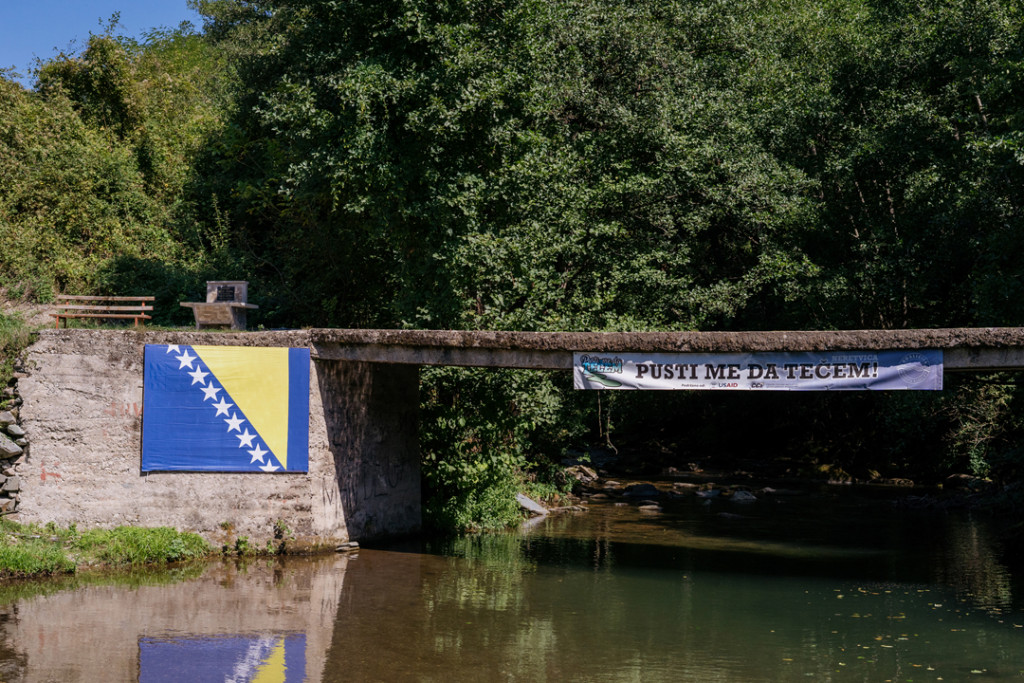
Reporter: Osman Zukić / Photo: Almir Kljuno
The Neretvica springs from under the veins of centuries-old chestnut trees. This typical upland stream flows through a narrow riverbed towards Lake Jablaničko. Along the way, it waters crops and provides water to the living world in this area. It has done so for thousands of years. On hot, dry summer days, which are characteristic of this locality on the threshold of Herzegovina, its sources never dry up.
You can still see white-clawed crayfish in its watercourse. This freshwater creature is on the red list of endangered species and it can only be found in clean, drinkable rivers.
Klis is the valley through which this river flows. The slopes along the riverbed are studded with villages. There are about thirty villages. The soil is fertile and loose. Streams flow from the slopes. Dozens of stećak necropolises, archaeological finds from the Roman era, and legends speak of life in this area. Every story begins and ends with the Neretvica. All bridges were built over the river. Everything moved with the river.
The river is the source of freedom in this valley.
First information about mini hydropower plant
Let us go back to 2006 when local people in the Klis valley heard for the first time that someone was planning to construct mini hydropower plants in the riverbed of the Neretvica. There were rumors about fifteen mini hydropower plants. Let us remember, that was ten years after the Dayton Peace Agreement was signed. The country was just in early transition years. Little was known about these kinds of projects and it was difficult to find out anything.
However, even then local people in this area had a determined approach. They did not want anyone digging in the riverbed. They expressed it clearly with several hundred petition signatures.
Ibrahim Turak remembers that time.
"We were not informed specifically about the investor’s plan. How it would all happen? However, after the petition was signed, activities kind of quieted down. The investor made some measurements. We had no need to fight against it because nothing was practically happening on the river."
The plan was clear. When activities in the riverbed begin local people will take the necessary actions to prevent these projects.
It was like that until February 2020. It was then when the investor, it turned out to be the utility Elektroprivreda BiH, finally started implementing the plans. To begin with, they planned to build two mini hydropower plants – the Gorovnik mouth and Srijamski bridge.
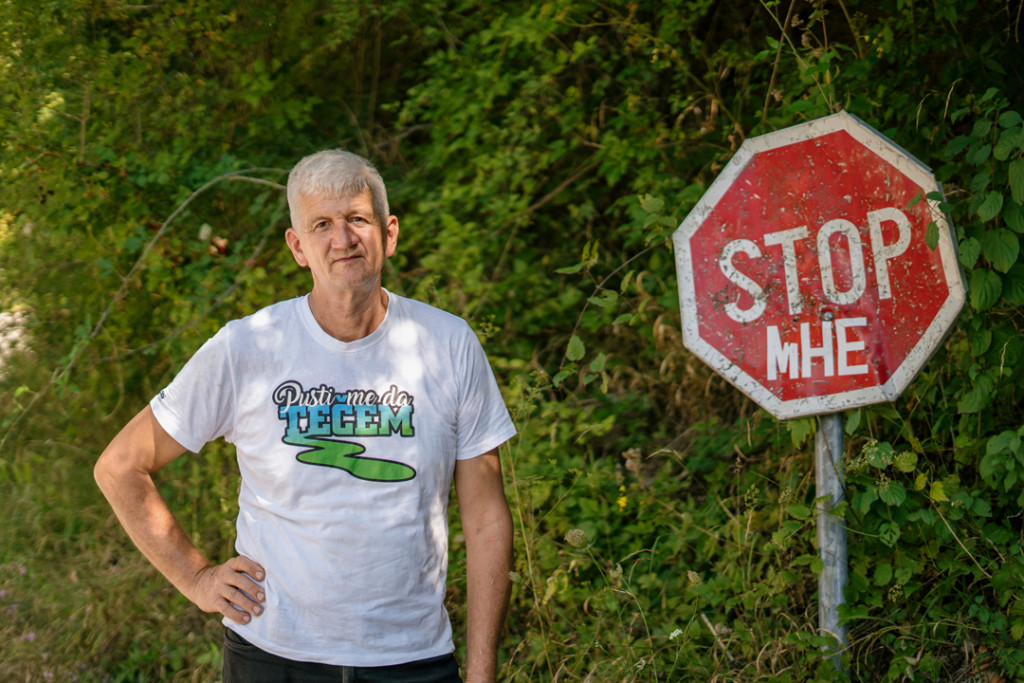
First protest
Twenty days later, local people organized the first mass protests in Parsovići. The petition against the construction was signed by over a thousand and a half citizens.
"We clearly expressed that we did not want those mini hydropower plants."
At that time, the machines had not yet arrived in the Neretvica valley. Given that accommodation for workers and other necessary logistics had been prepared, excavators and trucks could be expected.
"After that protest, we became active. We worked on making the movement massive. We brought together all associations in our valley and we coordinated the associations."
Ibrahim took the role of the leader of the movement, which was later formalized as the Citizens' Association "Let me flow".
In May, they managed to prevent the investor from putting up signs to make the commencement of work official.
No support came from the authorized municipality of Konjic. The support could not be expected, given that the Municipality of Konjic was a signatory to the concession agreement. If they had terminated it, the compensation would have been huge.
People were alone on the bridge.
The support came from legal experts who started the legal process. They were checking if the project was legal. Very quickly it turned out that the investor did not have all the necessary permits.
"At that time, we were simultaneously fighting physically to protect the river and to prevent the machines from entering the riverbed and starting construction. This is how we gave space to our legal team and our lawyers."
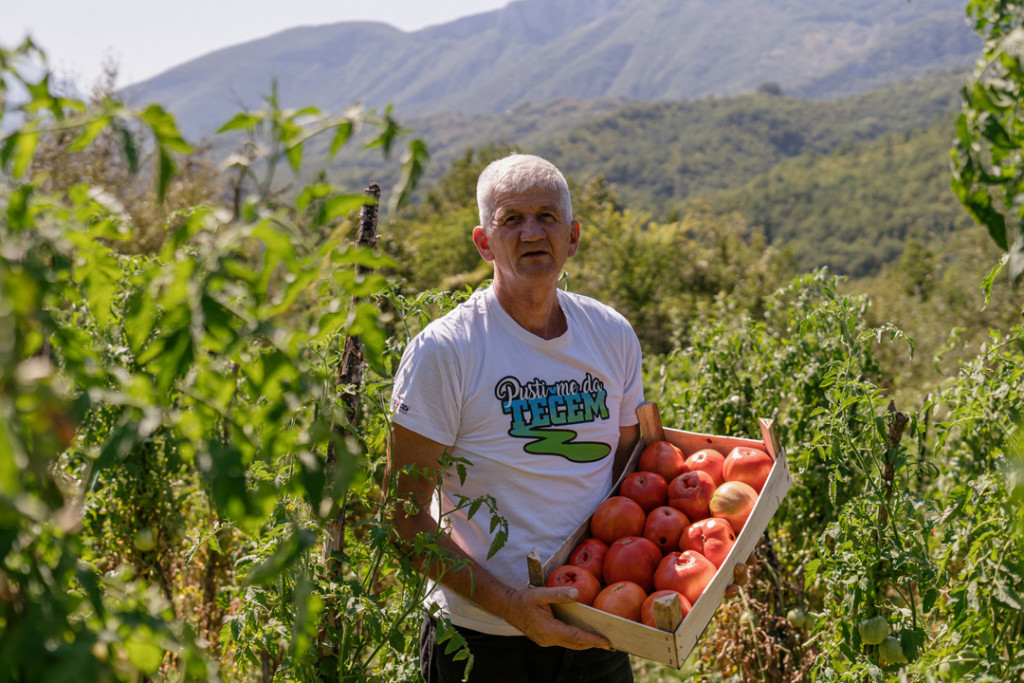
There was no fear
The machines came in June. Several hundred citizens, as we heard, were ready to defend the river with their lives.
"When you live with the feeling that you are right and when you truly fight for your right and when you fight against injustice, then there is no fear and there should be no fear. First of all, we held to the truth, and the truth was that the contractors and the investors had no right to come here because they did not work in compliance with the law."
The conviction that they were fighting for something that was theirs prompted them to step out in front of the machines without any fear. They had to prevent the commencement of work.
"If the machines had by any chance entered the river that day, this fight would have been completely different and would certainly have had different shapes and forms."
After several court proceedings, and after the water permits were invalidated, the Cantonal Court in Sarajevo made the most important decision. All the environmental permits were invalidated because the investors had not previously obtained the energy permits for the project.
The court proceedings in the case of the Neretvica River lasted from May 2020 to March and April 2023.
"That was the legal victory that we were anticipating and it sealed the deal. We showed everyone that we were right. To those who called us anarchists, who said that we were destroying the country, who used epithets that were very hard to bear."
Investment is small, but profit is big
Many court cases against investors in cases of the construction of these facilities on rivers in Bosnia and Herzegovina were closed with many irregularities found, but in the end it was not enough to stop the operation of these facilities, if they were already in operation.
A quick and safe profit is the motive that drives investors to implement such projects on rivers.
Ibrahim adds that money is a cursed motive.
Concession fees are mostly symbolic, and the investment is not large, considering the calculated profit. Additional income is generated through incentives from the fund for renewable energy sources. Citizens pay for that, too. On the other hand, these projects generate only two percent of electricity of the total production in Bosnia and Herzegovina.
"In the end, all the permits that were presented as valid were overturned in court. It turned out that we were actually defending the constitutional order of this country and that the investors were working illegally."
We still have a macadam road
The Neretvica valley can be reached from the direction of Konjic. The macadam road from the valley leads to Fojnica. There are many family ties and friendships between people from Fojnica and people from this area. Local people claim that there are promises that the road will be paved, which are attached to the story of the construction of mini hydropower plants.
"Vultures will always come to take what is good in your area, and we have had too many of such experiences. Huge and huge quantities of ore, huge and huge quantities of wood have been taken from our locality. Now they have come for water. And yet we still have a macadam regional road."
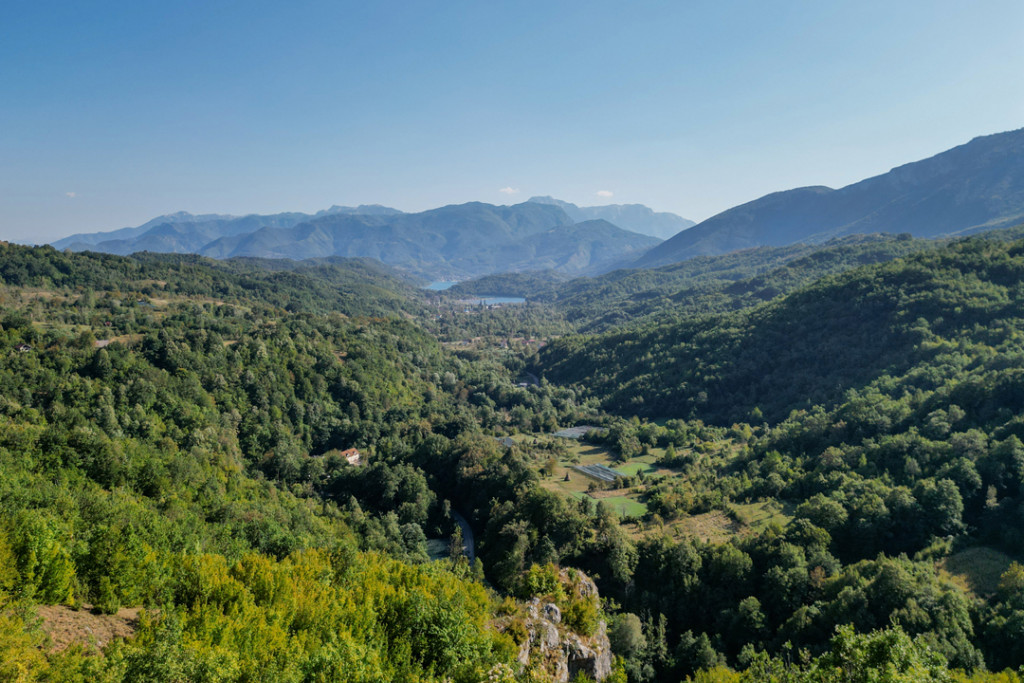
We came to the Neretvica valley several times. Last time in was at the end of the summer, after the long-awaited celebration where local people from this area, together with friends and partners, celebrated the victory and the termination of the concession agreement on the river.
They opened the museum of the fight inside the only remaining mill. Swimming and picnic spots have been built in a dozen places for everyone who wants to hide from the summer heat. Two brothers from the village of Gorani spend the day at one of these swimming spots. They grew up on this river and it is like a third brother to them.
Every time we came to the Neretvica, besides Ibrahim, we met with Safet Sarajlić, Atif, Mirela Sarajlić, Arnel, Šaćir Hrnjica...
Edhem came
When you talk to Mirela, for example, you see the joy that emanates from the fact that they have succeeded. She wrote requests to access information, communicated with partners, drafted and forwarded letters to the media. She came to the protests. Once at five o'clock in the morning.
"Well, specifically when Edhem Bičakčić came..."
What happened then?
"The commencement of work was announced. People gathered and waited on the bridge."
When they saw that no one was coming, most of them went home. Only the local people on duty stayed on the bridge.
"I just got back home, I just sat down to eat, I had been on the bridge since five in the morning, and suddenly the phone rang. I thought, now what?"
She answered the phone.
"They said that Edhem came, that he came to Parsovići. In fifteen minutes, two hundred of us gathered. Then we told them that we would not give them the river."
Edhem Bičakčić is an expert consultant on many projects on rivers in Bosnia and Herzegovina, and the company he owns designs most of these projects. On a symbolic level, local people see this day as one of the turning points. It was the day when they clearly and loudly let everyone know that they did not want these projects in their area.
"The thought alone of the river not being here is hard for me to bear."
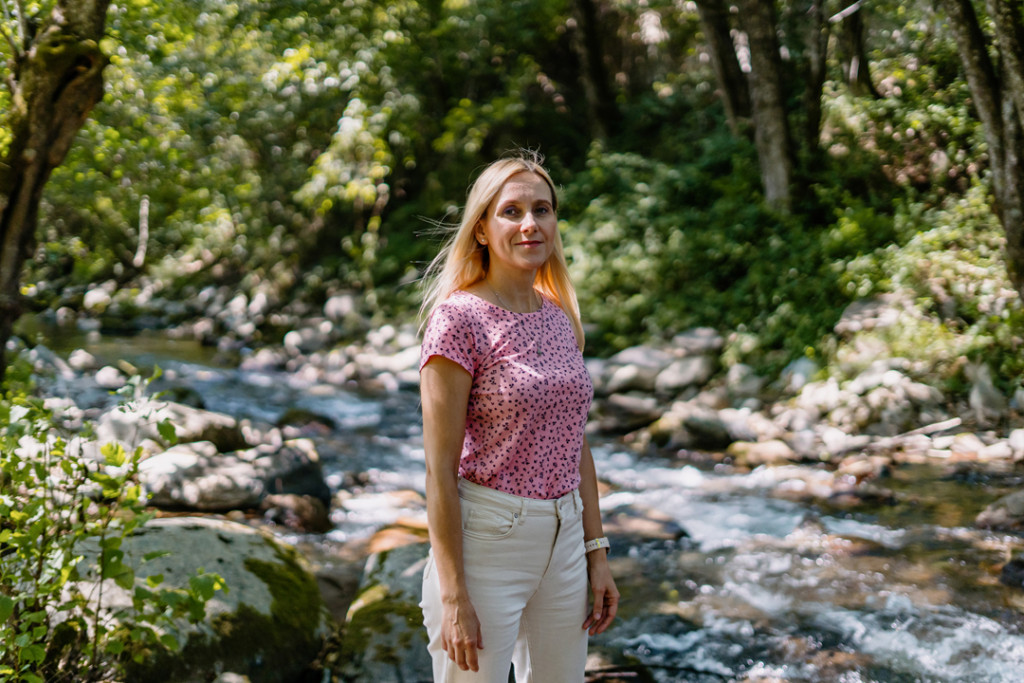
Mirela equates the river with life.
"When you destroy a river, you destroy life. The river is life. The river matters to everyone: it matters to humans, it matters to plants, it matters to animals. We would all be deprived of that right. And that is basic human right, the right to water."
Her love for the country where she lives prompted her to fight.
"We shouldn't be passive; we shouldn't be indifferent. It is our homeland, after all. Homeland is something that must be done. This is patriotism. Fighting for your environment, for your community. It simply shows how much you love your country."
River amputation
Safet Sarajlić's both legs were amputated after the accident he had on the construction site. We met him for the first time in his living room. He talks about the legal aspects of this case as a lawyer with many years of experience. When he talks about the Neretvica, he talks as if it is running in his veins.
He said that he perceived this project as an amputation of the river.
"We had a clear plan in this fight. We were not like sheep without a shepherd. One of the priorities of our fight was to protect the river physically in order to gain time."
He says that they offered him a reward to give up the fight. They told him to "write the amount he wanted". Even if he had agreed, he says laughingly, the others would not have given up the river. From his perspective, they were fighting here against one of the largest state-owned companies.
"Now, when I look back, I didn't have my private life in the last three and a half years. I was completely focused on defending the river. But the river is free, it flows, and that's the satisfaction I got."
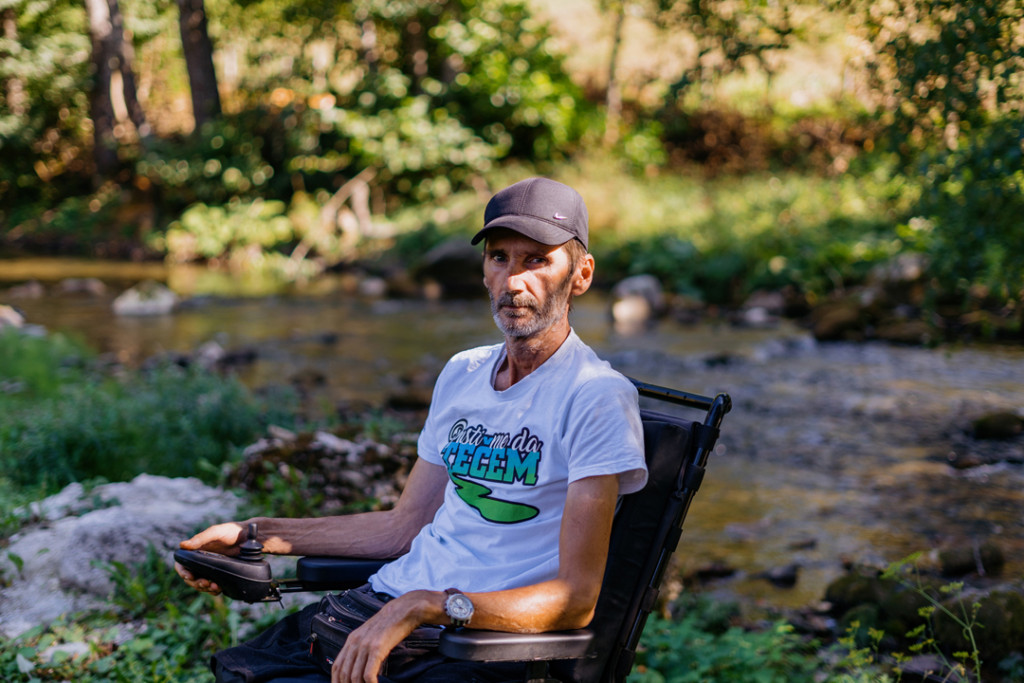
When it comes to this kind of projects, the slowness of the legal system in Bosnia and Herzegovina is an aggravating factor for activists. Evidence that things are not in compliance with the law is often discovered early. But, by the time courts confirm this, a lot of damage is already done.
"The turning point was when we checked the papers and found that there was no energy permit. We contacted the Federal Ministry of Energy, Mining and Industry and got the answer that no energy permit was requested for these projects."
And it was never issued.
"A building permit cannot be issued without an energy permit. That's where we got them."
Safet claims that it was important to point out to people the fact that this was not only the fight against the construction of mini hydropower plants, but the fight for the sources of drinking water.
"When concession is granted on a river, that concession encompasses all water sources on both the left and right side. You can no longer take a hose to water your field, because they can say that they lack water in the turbines. People must know that concession is not only on a river, on a stream, it is also on all sources of drinking water. This river has been making its riverbed for millions of years. When an excavator enters a riverbed, that river is irrecoverably lost."
Story as an inspiration
This river will continue to flow where it has flown for centuries. Its riverbed will provide a haven for white-clawed crayfish for a long time to come. Round stones will continue to be rounded. The river will roar down the valley. Many children will learn to swim in it, and farmers will use it to water their tomatoes.
This story is one of the most prominent examples of environmental activism in post-war Bosnia and Herzegovina. It has achieved a concrete result - the termination of the concession agreement and the abandonment of the construction of fifteen mini hydropower plants. This story is an example of how citizens, with good organization and adequate legal support, can exercise the rights that are guaranteed to them. The right to drinking water, the right to participate in decision-making, the right to freedom of expression...
This story is a case study for many environmental activists. How, when and what to do in order to protect natural resources around you?
This story and these people are an inspiration for many environmental movements in the region. After this example, investors will have to change their tactics when they want to occupy a natural resource.
This story, among other things, resulted in the amendments to the Law on Electricity in the Federation of Bosnia and Herzegovina banning the construction of mini hydropower plants (up to 10 MW). This leads to the process of terminating the concession agreements signed so far.
This is the story about how natural resources are not and should not be anyone's property.
(A story from the author's series "Activism in BiH: Lessons Learned and Missed", created with the support of the European Endowment for Democracy.)
